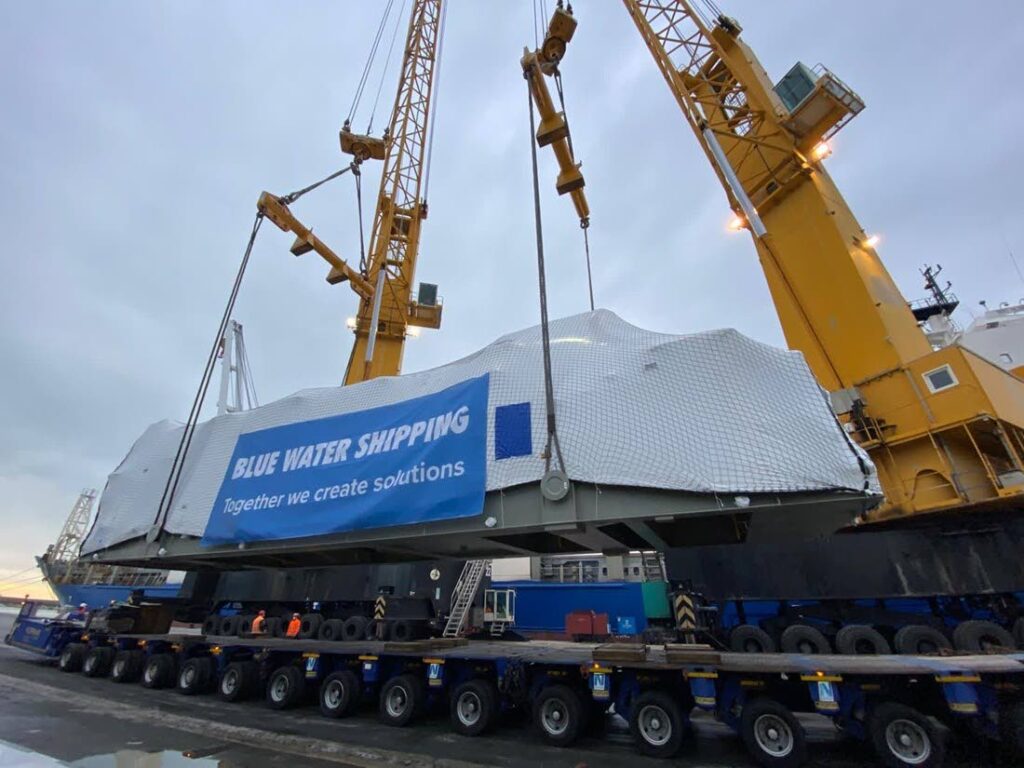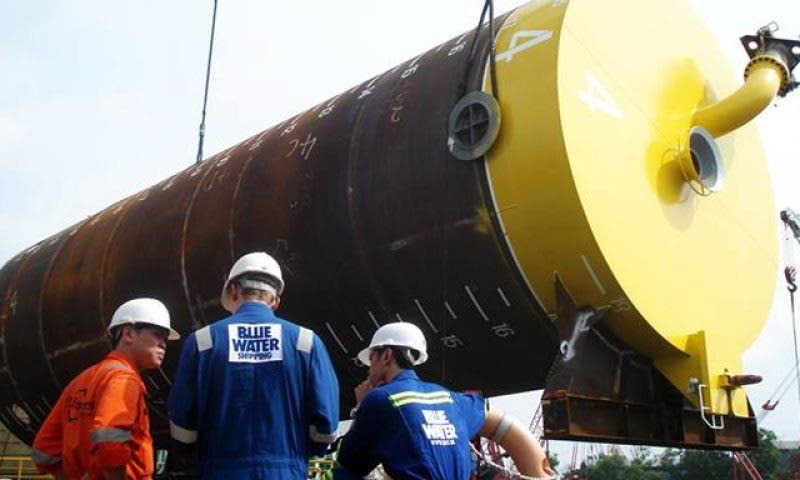Blue Water Shipping sails through supply chain rough seas

The cost of shipping and freight is expected to remain high over the next year because of the impact of logistic complexities to every part of the supply chain.
It is one of the challenges the shipping industry continues to face, Blue Waters Shipping (Trinidad) general manager Nooriana Seerattan said in an interview with Business Day.
She explained the operations, cost, and opportunities the company and the industry has had over the past two years.
The covid19 pandemic and now the Russia-Ukraine conflict has disrupted the freight and supply chains in multiple ways – from sanctions to higher fuel costs to higher shipping and freight costs.
Seerattan said no country was spared from the fallout of these events and small developing countries were the hardest hit.

“From what we see from the trends and forecasts, prices should remain this way throughout 2022. We still have a shortage of workers and congested ports throughout the world.
“The repercussions are massive at this time, and it is going to take some time for that to rectify itself. I suspect we will see some type of optimisation in 2022 but a more realistic time frame for price improvements could be in the second quarter of 2023,” she said.
Project manager Segrio Carter pointed out that the pandemic created a backlog for all sectors which has led to a domino effect and bottle neck at the ports for incoming and outgoing containers, which led to the increased costs.
“There are less containers now available for the utilisation for the transportation of materials and goods. Hence the reason things are being slowed down somewhat.

“Pre-pandemic days it was about $3,000 per container now its $15,000 to $20,000. We are also seeing people trying to consolidate their purchases because of the congested ports and the costs,” he said.
Blue Water Shipping is a Danish company with offices in 60 countries and began operations in TT in 2020. Its office is in Albion Plaza, Port of Spain and operations in Suriname are done remotely. There is also an office in Guyana with plans to expand in the Caribbean region and Latin America.
Blue Water Shipping services include but are not limited to sea and air freight; oil, gas and industrial projects; port services; marine and reefer logistics; transportation services; and cargo insurance. The company will celebrate its 50th anniversary in September.
Seerattan said the company was able to set up easily in TT as its planning was done pre-pandemic and its main line of business done within the oil and gas sector.

“The decision to come to TT was done right before the pandemic so it was quite easy to set up. All the contracts, acquisition, the teams, the actual base of operations were decided before the shutdown.
“Luckily in TT because of its oil and gas related we did not have a day off as the ports were in constant operations. Of course, there was reduced manpower because of the covid19 restrictions, she said.
Although it was a one-man show at the beginning of operations in TT, Seerattan said the company was able to contribute to local job creation.
“We started by subcontracting another company, so it was basically a one-man show at the beginning. But we leveraged the capabilities from the global offices, so while there was physically one person here representing the company, we had the global teams at the shipping lanes, air hub and ocean hub, etc so we were able to pull these resources when it was needed.
“We subcontracted certain services such as labour, equipment and port services. We have ramped up since then from one to ten people on the team,” she said.
Additionally, the company, Seerattan said, was able to adapt to keep its customers and while that meant some costs increased, it also meant that they were able to get their shipments.
“Blue Water was able to charter some vessels up front and it was a cost we had to invest in but the impact for us was less than the risk of losing our clients.
“We had a real consolidation out of China where they had dedicated lanes for certain clients like medical supplies, protective wear.
“Yes, we did transfer some of the cost to our customers, but it wasn’t on a higher scale and of course managing that against the timelines, where they would have had to wait about six months for their cargo compared to about a month,” she explained.
The local operations, Carter said was helped by the use of new and improved technology for the industry.
He said the technologies were essential and enabled better logistics operations, investment in the supply chain, elevated labour tightness and sustainability.
Carter said, “It’s not just to pick up the phone and say we need this. That is just part of it. We needed to meet the customers' expectations throughout despite the challenges.
“As logistics companies like us adapt to the ongoing changes within the industry, we look to streamline processes and must focus on continued sustainability.”

He added that the pandemic has shown businesses the importance of remaining flexible and adaptable, and despite exposing vulnerabilities it also provided opportunities.
Carter pointed out that doing business during the pandemic was made easier and commended the relevant Government ministries for implementing various procedures and technologies.
“They stepped up their game in creating the necessary technologies to ensure progression of the logistics requirements for TT such as ASYCUDA, other automated systems, required notifications to the ports of entry of incoming shipments.
“They have proactively approached the situation. Prior to the pandemic, it was a matter of presenting yourself on the day at the port to clear containers. Yes, there would be room for improvement, one which would be response times,” he said.
Both Seerattan and Carter said the company took climate change seriously and because the nature of its operations was keen on the use of renewables, it has also invested in technology to track its carbon footprint.

Comments
"Blue Water Shipping sails through supply chain rough seas"